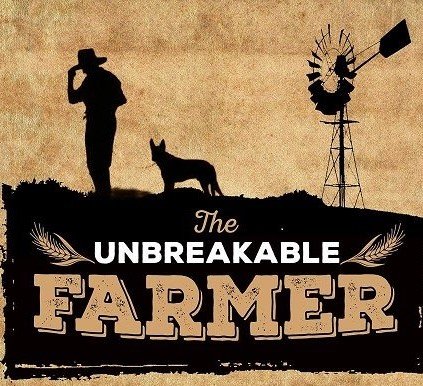Building Capacity from the Ground Up: Strengthening Rural Communities Through Drought, Flood and Everything In Between
Out here in rural, regional and remote Australia, we know what it means to ride the highs and lows. One year it’s dry as dust with cracks in the earth that run deeper than just soil. The next, it’s floodwaters tearing through paddocks and roads like they own the place. But through it all, one thing stays constant, the strength of our people. And it’s that strength, that quiet determination, that needs more than just grit. It needs support, tools, and a community behind it. That’s what building capacity looks like in rural Australia.
As The Unbreakable Farmer, I’ve walked that line myself, from losing my farm and my identity, to rebuilding not just a livelihood, but a life with purpose. My mission now is simple: to raise awareness and provide education around mental health and wellbeing in rural, regional, and remote communities. To spark honest conversations. And to empower people to seek help when they need it.
Because truth is, we’re not meant to go it alone.
The Real Cost of Disaster
When drought hits, it doesn’t just suck the moisture from the land it drains energy, hope, and often the last bit of financial security people have. On the flip side, floods might bring green back to the paddocks, but they can also bring chaos, destruction, and trauma. Either way, it wears on people. And it’s not just the farmers. It’s the small-town businesses, the frontline workers, the parents, the kids, the volunteers the whole fabric of our communities.
You can’t build resilience overnight. And you sure as hell can’t expect people to cope without the right support around them.
That’s why building capacity in these communities needs to go beyond delivering hay or sandbags. It’s about strengthening the stuff you can’t always see the emotional, social and mental health support systems that keep people going when times get tough.
Starting Conversations That Matter
One of the biggest challenges I’ve seen out on the road from the Mallee to the Murray, the Gulf to the Gippsland is silence. People struggling in silence because they don’t want to be a burden. Or they reckon everyone else is doing it tougher. Or worse, they’ve been told to “harden up”.
Well, I call bullshit on that.
Mental health doesn’t care how tough you are. It doesn’t care how many acres you run or how early you get up. It affects all of us. And the only way we get on top of it is by having honest, real, and often uncomfortable conversations. That’s what I try to do through my talks, through my writing, and through the Unbreakable Wheel of Wellbeing.
The Unbreakable Wheel of Wellbeing
The Unbreakable Wheel is a simple but powerful tool I use in communities to promote holistic mental health. It’s made up of the areas I believe are critical to staying well: Connection, Purpose, Growth, Nutrition, Movement, and Support.
In dry times, you might be smashing it with physical work, but feeling disconnected and isolated. During floods, you might be stuck at home, feeling unproductive or without purpose. The Wheel helps people identify what’s out of balance and reminds them that wellbeing isn’t just about one thing, it’s the whole picture.
We use the Wheel in workshops, toolboxes, even at the local footy club. It’s a conversation starter, a planning tool, and most importantly a way for people to take control of their own mental health in a practical, relatable way.
Empowering Through Support
We need to normalise reaching out for support, the same way we normalise checking the weather forecast or calling a neighbour to move stock. It’s not a sign of weakness it’s a sign of awareness, of emotional intelligence.
There are some incredible services doing the hard yards in this space:
TIACS: Free, professional counselling for tradies, truckies, farmers and their families. Call or text 0488 846 988.
Lifeline: 13 11 14 — someone always there when you need a yarn.
Rural Aid: Not just financial assistance, but on-the-ground mental health support and community rebuilding.
Beyond Blue: Resources, info and chat support.
Local GPs, psychologists, and rural health workers: They are part of the community too and want to help.
But it’s not just about waiting for a crisis. We need to be proactive. That means checking in with your mates, talking at the pub, at footy training, or over a cuppa at smoko. Community events, mental health days, comedy nights they all play a part. Connection is a protective factor. It keeps people from falling through the cracks.
A Community Built to Last
Building capacity in rural communities doesn’t come with a blueprint. But it starts with trust, understanding, and listening. It’s about giving people the tools to look after themselves and each other not just during the disaster, but before and after as well.
We may not be able to stop the next drought or flood. But we can build stronger, more connected, more resilient communities that don’t just survive, they grow.
Let’s keep having the conversations. Let’s keep showing up for each other. Let’s keep reminding people they are never alone — not in the dry, not in the flood, not ever.
If you’re doing it tough or know someone who is, don’t wait.
📞 TIACS: 0488 846 988
📞 Lifeline: 13 11 14
🌐 www.theunbreakablefarmer.com.au for more info and free resources including the Unbreakable Wheel of Wellbeing eBook.
Together, we’re stronger. Let’s keep turning that wheel.
